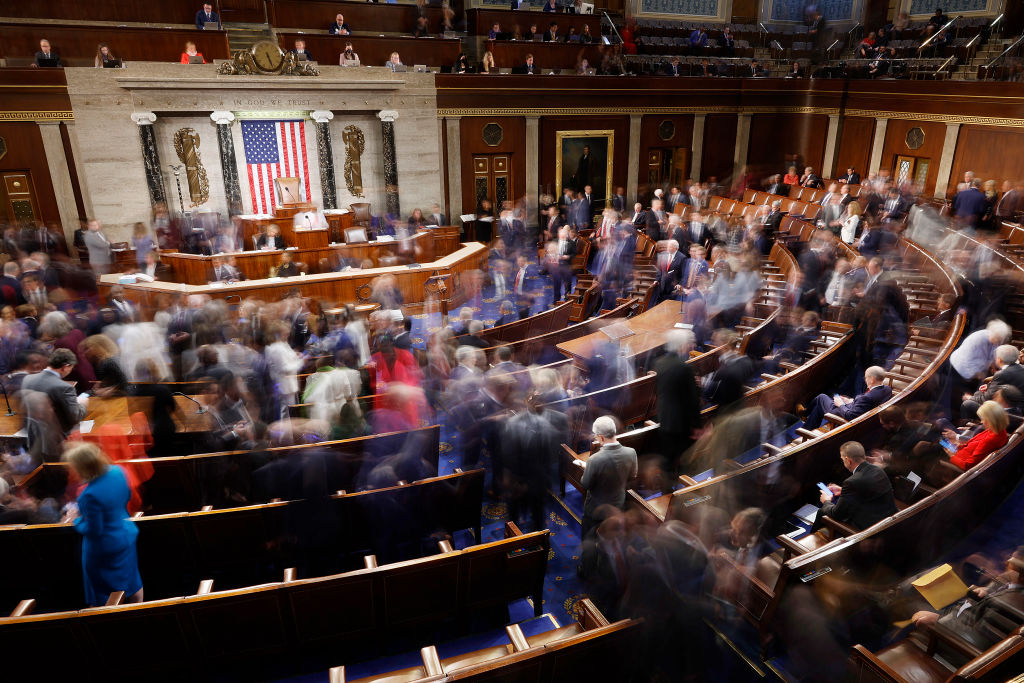The threat spectrum

Planet A
The first phase of the European Union’s carbon border tax, known as the Carbon Border Adjustment Mechanism or CBAM, commenced on 1 October. EU trading partners are now required to report greenhouse-gas emissions tied to their exports of iron, steel, cement, aluminium, fertiliser, hydrogen and electricity. Under the second phase, from January 2026, companies will also have to pay a gradually phased-in levy in line with prices in the EU’s carbon market.
The policy is part of the EU’s push to become the world’s first carbon-neutral continent, and is designed to ‘encourage industry worldwide to embrace greener technologies’, says the EU commissioner for economy. However, the scheme has caused a backlash in many countries. A report from Carnegie Europe indicates that the impacts of the CBAM will be most severe on the EU’s biggest trading partners, including the US, China, Russia, the UK and India. Australia’s trade minister has slammed the policy for harming global growth.
Democracy watch
US House Speaker Kevin McCarthy was ejected from his leadership position this week after eight Republican lawmakers joined all their Democratic colleagues to pass a historic no-confidence vote 216 to 210. McCarthy’s departure has created a power vacuum within the Republican Party. He has announced he will not seek to run again.
McCarthy ally and chief deputy whip Patrick McHenry has stepped in as interim speaker, but adjourned the House while Republicans work out a replacement. Republicans have a small majority in the House (221 to 212), and the incident raises questions about US political stability a year out from the 2024 presidential election.
With about 40 days left to avert another government shutdown, a change of speaker could have serious implications for the international reputation of the US and its aid to Ukraine. Some of McCarthy’s potential successors appear to be strongly in favour of assisting Kyiv while others are staunchly opposed.
Information operations
A report by the Information Operations Research Group claims that China has been spreading scepticism of the US in Taiwan over the past three years. Researchers from the Taiwan-based civil-society organisation examined 12 key events between 2021 and 2023 and identified 84 narratives that promoted ideas that the US is ‘hollowing out’ Taiwan through unfair exchanges and seeking its ‘destruction’ by abandonment. The findings come as cross-strait tensions escalate ahead of Taiwan’s presidential and legislative elections in January 2024.
The report suggests that the Chinese government and state media are trying to exploit doubts voters may have about the US and sway mainstream public opinion in Taiwan in favour of anti-US messaging. However, an opinion poll released in August showed that most Taiwanese people (57%) disagreed with the statement that US military aid will ‘push Taiwan toward war’. Beijing’s manipulative efforts have been mitigated by Taipei, which has been quick to issue statements and release images that counter disinformation.
Follow the money
Japan’s exports to China fell 11% year-on-year in August, marking a ninth straight month of declines. The drop is likely related to the influence of political factors on Japan–China trade. In July, for example, Japan introduced export controls on semiconductor manufacturing equipment, and last month China suspended all seafood imports from Japan, citing concerns about the discharge of nuclear wastewater from Fukushima. Japan posted a trade deficit of ¥930.48 billion ($9.9 billion) in August, and China’s trade restrictions caused the biggest drop in food exports to the Asian market in more than a decade.
China is Japan’s largest trading partner, accounting for around 20% of total Japanese shipments. In August, significant reductions were observed in mineral fuel (down 64.3%), steel (down 27.8%) and electric measuring equipment (down 25.5%), as well as food. Notably, shipments of electronic components were up by 25.5%.
Although the weak recovery of the Chinese economy after Covid-19 will continue to negatively affects Japan’s exports, Japanese shipments to the US increased by 5.1%, and those to the EU rose by 12.7%, primarily driven by growth in steel, automobile, mining and construction machinery exports.
Terror byte
Canadian Prime Minister Justin Trudeau has accused Indian government agents of assassinating Sikh separatist leader Hardeep Singh Nijjar in the Canadian province of British Columbia. Nijjar was killed in front of a Sikh temple in June by two masked assailants in June. He was a supporter of the Khalistan movement, which seeks a separate homeland for Sikhs in the Indian state of Punjab.
The alleged assassination has set off a major diplomatic dispute between Canada and India. The two countries have postponed trade negotiations planned for this month in New Delhi.
New Delhi categorised Nijjar as a terrorist in 2020, stating that he led a terrorist organisation banned in India called Khalistan Tiger Force. For years, India has accused Canada of harbouring Sikh terrorists and of turning a blind eye to the activities of its Sikh Canadian population.
